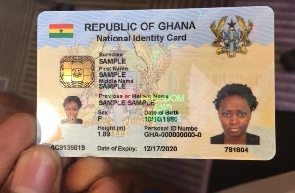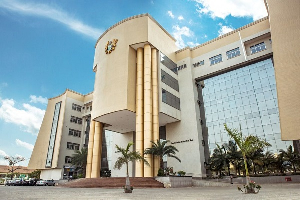During the confirmation process for the vetting of the new Chief Justice, Her Ladyship Justice Gertrude Torkonoo, a longstanding political dispute regarding the validity of birth certificates as registration documents for the voter's ID card resurfaced.
The Supreme Court had previously ruled that birth certificates alone could not serve as the primary proof of Ghanaian citizenship. With the introduction of the Ghana Card, the country is transitioning into a new era of ensuring accurate identification of Ghanaian citizens. Possessing a Ghana Card is regarded as a more reliable indicator of citizenship compared to a birth certificate.
Certain segments of the Ghanaian population, including the main opposition party (NDC), have contested these developments and raised concerns about the implications for birth registration and the criteria for determining Ghanaian citizenship. In response to these queries, the new Chief Justice clarified the Supreme Court's earlier ruling and expounded on the concept of lineage as a prerequisite for Ghanaian citizenship.
According to the Chief Justice, being a Ghanaian entails being able to trace one's ancestral roots with verifiable evidence of parental lineages within Ghana. Furthermore, the Chief Justice emphasized the distinction between Ghanaian laws and those of other jurisdictions, where automatic citizenship is granted to individuals born within the country.
This explanation has generated additional controversies and sparked further debate regarding the reliability of lineage as a conclusive proof of Ghanaian citizenship compared to a birth certificate, which records an individual's details at birth, including parental information. In support of the Chief Justice's assertion, it can be argued that lineage provides a stronger basis for determining citizenship.
In a polarized country like Ghana, where institutional weaknesses persist, obtaining a birth certificate is easier even for non-Ghanaians. Moreover, due to less stringent regulations governing foreigners, it is simpler for individuals of foreign origin to exploit loopholes in the system and acquire birth certificates intended solely for citizens.
It is crucial to acknowledge that our birth registration system has not undergone the necessary improvements to effectively differentiate between foreigners and citizens. Traditionally, the birth certificate has served as a foundational document for obtaining other national identification papers or cards.
However, given the prevailing institutional weaknesses, polarization, and corruption, an increasing number of foreigners are able to manipulate the system. Granting voters ID cards solely based on possessing a birth certificate opens the door for many non-citizens to exercise voting rights meant exclusively for citizens. As a nation, it is imperative to strengthen our laws and prevent foreigners from exploiting our system.
We must not allow political expediency to cloud our judgment and mistakenly prioritize birth certificates as a means to obtain critical national identification documents. The ability to trace one's roots should not be a difficult exercise for a matured Ghanaian or another person who can bear witness to that lineage.
If you are a Ghanaian citizen who wishes to vote, it is imperative to go through the rigorous process of obtaining your Ghana Card, which not only solidifies your status as a citizen but also enables you to acquire a voter's ID card to exercise your right to vote. The Ghana Card's robust design ensures a clear distinction between citizens and non-citizens.
By emphasizing the significance of lineage in determining Ghanaian citizenship and promoting the use of the Ghana Card, we can foster a stronger national identity while safeguarding the integrity of our electoral processes.
Opinions of Wednesday, 31 May 2023
Columnist: Isaac Ofori














